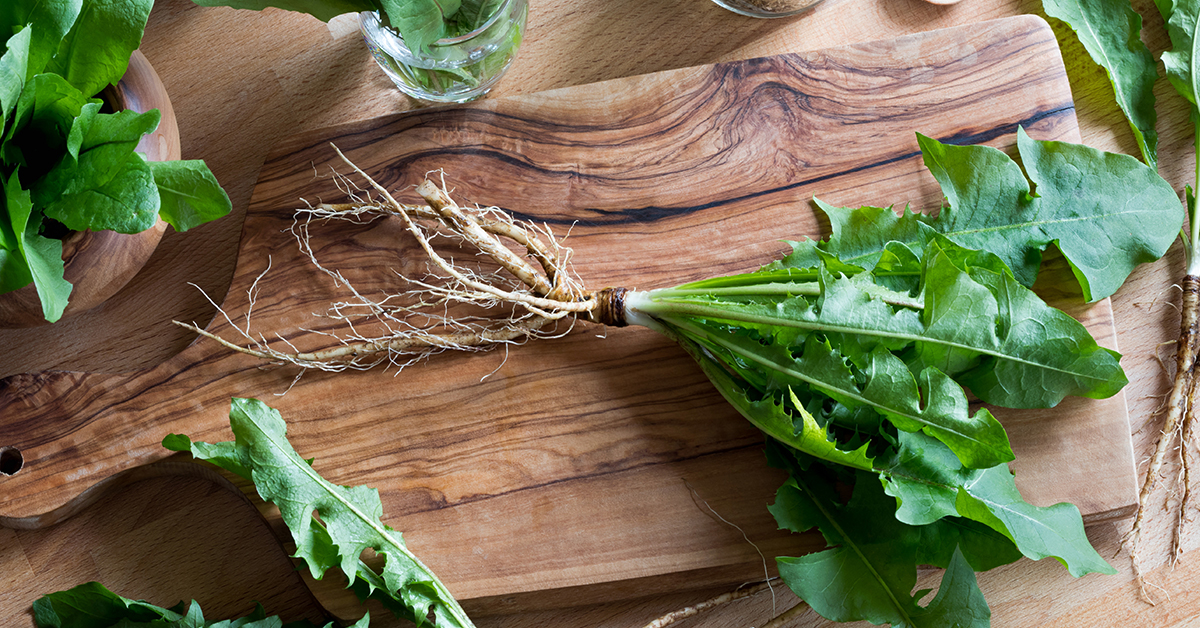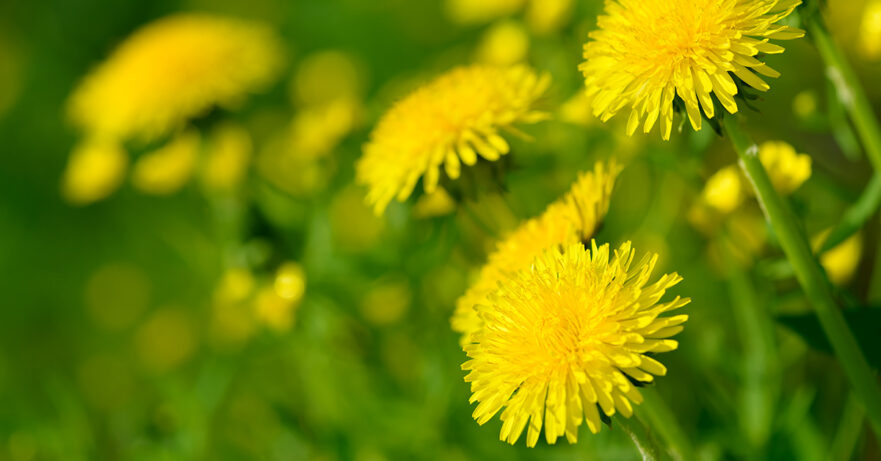In this monograph about dandelion:
📖 Introduction | 🌱 Botanical Description | 📜 Traditional Uses | 🔍 Phytochemistry | ✨ Applications and Uses | 🛡️ Safety Profile
📖 Introduction
Dandelion (Taraxacum officinale) is a perennial herb celebrated for its nutritional and medicinal properties. A common sight in meadows and gardens, dandelion has transcended its reputation as a weed, becoming a staple in herbal medicine for its detoxification support, digestive aid, and anti-inflammatory benefits.
| English Name | Dandelion |
| Latin Name | Taraxacum officinale |
| Parts Used | Leaves, root |
| Traditional Uses | Diuretic, liver support, digestive aid |
| Herbal Actions | Diuretic, hepatic, cholagogue, mild laxative |
🌱 Botanical Description
Scientific Classification
Taraxacum officinale belongs to the Asteraceae family.
Physical Characteristics
Dandelion is characterized by its deep taproot, rosette of jagged green leaves, and bright yellow flowers that mature into spherical seed heads.
Natural Habitat and Cultivation Details
Native to Eurasia, dandelion is now widespread across temperate regions worldwide. It thrives in various environments, from lawns and gardens to wild meadows, preferring well-drained soils and full sun.
📜 Traditional Uses
Traditionally, dandelion has been used to support liver health, stimulate digestion, and as a diuretic. Its leaves, roots, and flowers are all utilized in herbal practices, with preparations dating back centuries to promote general well-being and address specific ailments.

🔍 Phytochemistry (Active Constituents)
Dandelion’s broad range of medicinal benefits is due to its rich phytochemical composition, including:
- Bitter terpenoids (Taraxacin): Stimulate digestive secretions, enhancing appetite and digestion.
- Sesquiterpene lactones: Contribute to the herb’s bitter properties and enhance liver function.
- Phenolic acids and flavonoids: Offer antioxidant and anti-inflammatory benefits, supporting their protective effects on the liver and overall health.
✨ Applications and Uses
In herbal medicine, dandelion is valued for:
- Liver and gallbladder support: Used to enhance liver detoxification processes and stimulate bile flow from the gallbladder.
- Diuretic properties: The leaves are utilized for their ability to promote urine production and reduce water retention, benefitting kidney health.
- Digestive aid: The bitter principles of dandelion help stimulate digestive enzymes, facilitating the breakdown and assimilation of nutrients.
The utilization of dandelion in these areas emphasizes its role in promoting detoxification, supporting digestive health, and acting as a natural diuretic.
🛡️ Safety Profile
Dandelion is generally considered safe for most adults when consumed in food or medicinal amounts.
However, it may cause allergic reactions in individuals sensitive to the Asteraceae family.
Due to its diuretic effect, individuals using diuretic medications or with kidney conditions should exercise caution.
Pregnant and breastfeeding women should consult a healthcare provider before use.
Consultation with a healthcare professional is advised before starting any new herbal supplement, particularly for individuals with pre-existing conditions or those taking other medications.
📃 Related Posts
🌱 Related Herbs

